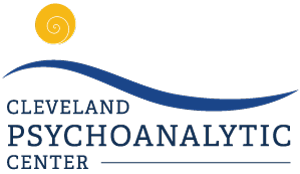Development During a Crisis by Deborah Paris, LISW
There are a myriad ways of filtering the current universal experience, some of which address the commonality of the experience, others addressing the individual and idiosyncratic aspects to the experience. This pandemic affects everyone, though particular circumstances externally very widely, just as the particular personalities and histories vary widely. We are looking for connection through the universality of the experience. But we are also learning that that discounts terrible social aspects that can influence outcome- wealth, race, and geographic location particularly. The following discussion is offered not to deny being black or poor makes one more vulnerable, less protected, than being white and with means. I am going to look at the internal processes that are universal in this, to look at the common thread to the experience that, if we identify it, can help us know how to address it in the future.
Much has been written about child development, about the various stages that children go through on the way to becoming adults. One way of thinking about this is to understand what we mean by stages. As children grow, they are receiving new information from inside their bodies as their biological and physiological selves develop, and new information from the outside as their brains and neurological pathways develop. Structures and organization within the personality develop around this information and around feelings and conflicts of each stage. The new information propels growth, and results in progress, but along the way destabilizes what structures and organizations have developed according to the earlier information and feelings in place. So new information, new experiences, upset the apple cart for a while, until new organization and understanding emerge. Development is the process of organization, disorganization, reorganization. Or put another way, it is the process of stabilization, destabilization, re-stabilization. This means that when things change, anxiety and confusion can reign until a new order comes into being.
The pandemic has disorganized our external world, our internal worlds are struggling with these changes. Just like in child development, where children are in flux as they move through childhood, we are in flux as we move through a world that isn't operation on the known principles we had assumed were constant. This means we are feeling uncertain, unable to predict things, unsafe.The world isn't what we want it to be or what we thought it was. And the changes emerging from this will mean we change in how we feel and function in the world, long after the pandemic is in the rear view mirror. We are seeing things in our culture and world that don't work, when we had lived as if they did work. It has focused us to feel more acutely the global and local changes that are highlighted during this disaster. Our systems failed, our sense of our country and our society have altered, and our sense of our own place in the world are altered.
But jut as in developmental process, this dislocation and disorganization will yield to a new organization, internally and externally, that can take into account the new information in front of us. Hopefully, we will tackle the problems this has laid bare in a way that is effective, humane, honest and responsible. This is what development has always meant- that we change and evolve, we adapt and accept the alterations, and they become integrated into who we are. This is the challenge for us as individuals and us as a society.
